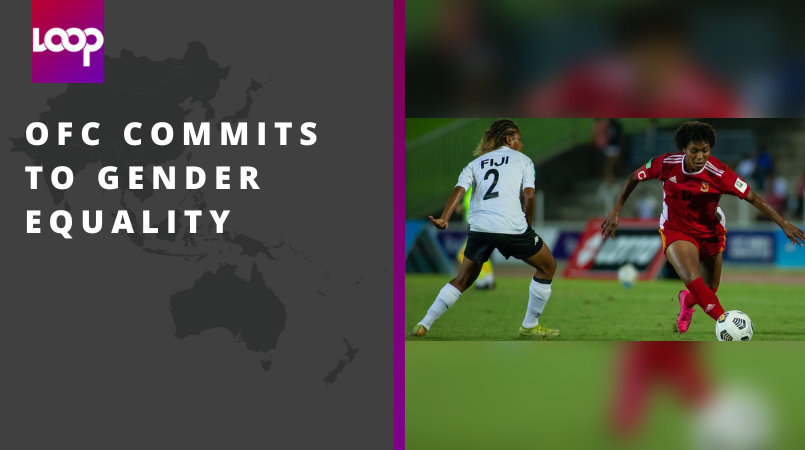
In commemorating International Women’s Day today, March 8 the OFC discussed the Gender Equality Playbook and ideas around how to implement it in moving towards gender equality.
The Playbook launched last year marks the first step in OFC’s Pacific Legacy Programme, as it work to first understand the context and give voice to intended beneficiaries before delivering programmes and activities that address or remove barriers.
OFC Head of Social Responsibility, Michael Armstrong was full of praise for the project, which has been the result of a year of research and development.
“The Playbook sets out some clear actions that we can take as a region. For us, it’s going to be a guidebook and a start of a conversation that we can have with our MAs and other stakeholders that can really drive forward some specific actions that we can take to address inequality.”
Globally there have been significant developments in the opportunities for and value in women’s football.
Research suggests an overwhelming majority support greater opportunities for women to participate and up to a six fold increase in the value of women’s football is expected in the next decade.
Development of women’s sport requires intentional and strategic action that acknowledges the unique Oceania context, including specific challenges and opportunities.
Armstrong says while there has been a great deal of research globally looking at how OFC can grow women’s sport and promote a more equitable society through sport, there has been little work focusing directly on the Oceania region.
Dr. Johanna Wood, president of NZ Football, said that: “I think gender equality is so important because it provides a platform for being inclusive. If we don’t have equality, we can’t be truly inclusive, in anything we do.
“So, we need to have some measures. What will equality look like? This gives us a starting point. I think the Playbook will help the OFC region by providing a toolkit that will enable MAs to look at what they’re doing and evaluate what they’re doing, then come up with a plan to address those issues for women and girls in the Pacific.”
The Playbook explores the barriers and strategic actions required to deliver greater equality in our region across the following interconnected areas:
• Participation
• Coaching
• Leadership
• Media and visibility
• Sport Policy
• Promoting Equality and Preventing violence
Armstrong said the last focus area is of particular importance. Football, and other sports, is seen as a valuable site for primary prevention in changing knowledge, attitudes and practices to stop violence before it starts and to stamp out gender based violence in sporting contexts.
“We have a great platform here to change attitudes, behaviours and beliefs across the Pacific,” said Armstrong.
